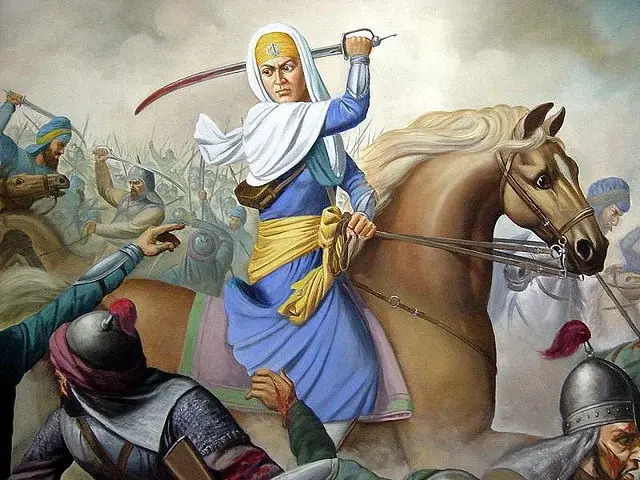Daughters of the Panth: Sikh Women Who Carried India’s Dream of Freedom
- SikhsForIndia

- Aug 11, 2025
- 3 min read
Updated: Aug 13, 2025

The Punjab of the early 1900s was a land of contrasts. Mustard fields swayed under the wind, gurdwaras called the faithful to prayer, and the fragrance of fresh rotis from mud kitchens drifted through village lanes. But beneath the serenity, another current ran deep - the quiet murmur of a people restless for freedom. While men rallied in protests, faced bayonets, or crossed oceans to plot insurrections, there were women who fought their own battles, without weapons or uniforms, yet with a courage so steady it could not be shaken.
One such was Bibi Gulab Kaur, a simple woman from Bakshiwala village whose life turned into a chapter of defiance. When the Ghadar Party’s call reached her ears, she left the safety of home to become a courier of arms and revolutionary pamphlets. Disguised as a vendor, she walked miles to stir soldiers into mutiny against the British in 1915. Her hands were not trained to hold a rifle, yet she carried a heavier load, the risk of imprisonment or death at every step. Her path echoed the Sikh spirit of Seva or selfless service and Dharam Yudh or the righteous struggle against injustice.
In other homes, the war for freedom was waged in a different way. Sikh mothers tied the keski on their sons’ heads, knowing they might never return. Mata Kishan Kaur of Jhabal lost four sons to the gallows during the Babbar Akali movement. When asked about her sacrifice, she said only, “If I had more sons, they too would have gone.” This was not empty bravado, it was the distilled steel of centuries of faith and fortitude.
History often counts freedom fighters in jail records or battlefield reports, but the women of the Gurdwara Reform Movement in the 1920s left no such neat ledgers. The British arrested them in droves, beat them, and demanded they sign bonds of “good behaviour.” Most refused, choosing imprisonment over compromise. Some took the fight into the political realm. Rajkumari Amrit Kaur, though not Sikh by birth, became a fierce advocate for Sikh causes, India’s first Health Minister, and a champion for women’s rights. Bibi Balbir Kaur emerged as a symbol of unflinching resolve, leading peaceful morchas despite police batons and lathi charges.
Their courage was not just in protest, it was in preservation. In protest camps and prisons, Sikh women sustained the langar tradition, cooking for hundreds so hunger would never weaken resolve. It was a living echo of Mata Khivi’s 16th-century service, proving that feeding the body was also a way of fortifying the soul.
And then came 1947. The map of Punjab was split, but the suffering was whole. Sikh women once again became the line of defence, guiding jathas across hostile terrain, shielding children from violence, and bearing the unthinkable losses of Partition with a dignity the world barely recorded. Their pain was part of the price of freedom, a debt to be rememberedin the flag-waving of every 15 August.
India’s freedom is a tapestry woven from countless threads, and the strands of Sikh women’s courage run bright through its fabric. They stood like the deodars of their homeland, rooted in faith, unbending before storms, their strength nourishing generations to come.
On this Independence Day, let their names be spoken, their sacrifices honoured, and their spirit carried forward, for the freedom they dreamed of is the freedom we must keep worthy.



Comments